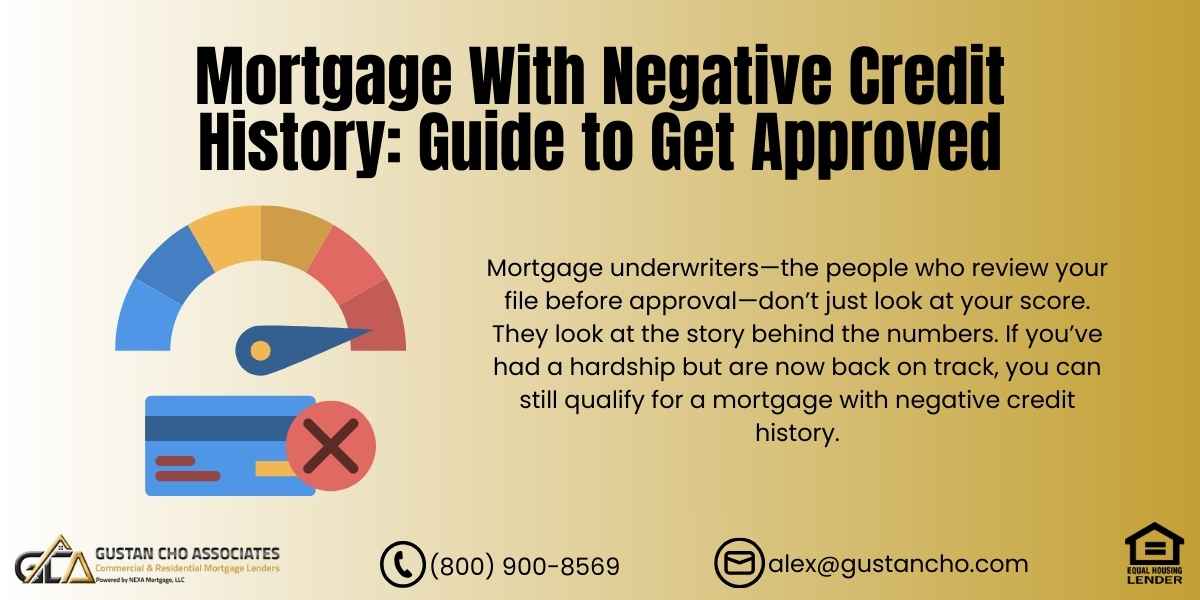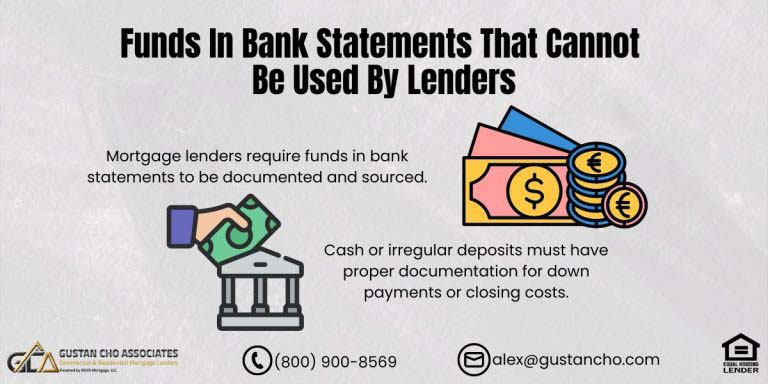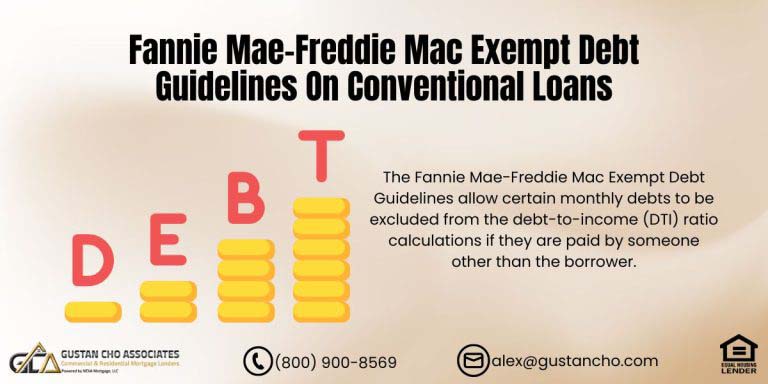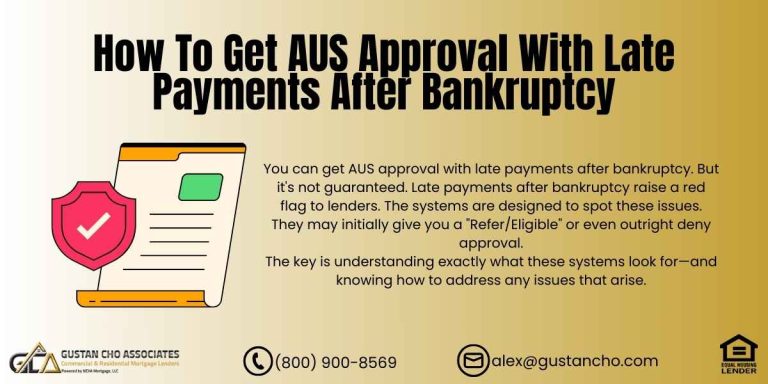Buying a home is one of life’s biggest dreams. But if you have a mortgage with negative credit history—late payments, collections, or even a past bankruptcy—you might feel like that dream is out of reach. The truth? It’s not.
At Gustan Cho Associates, we specialize in helping borrowers others turn away. With no lender overlays and flexible programs, we’ve closed loans for thousands of families with credit challenges. This 2025 guide breaks down everything you need to know about getting a mortgage with negative credit history—in plain language you can use right now.
What Does Negative Credit History Mean in Mortgage Underwriting?
“Negative credit history” means there are marks on your credit report that show financial struggles. These can include:
- Late or missed payments
- Collections and charge-offs
- Judgments or tax liens
- Bankruptcy
- Foreclosure or short sale
Mortgage underwriters—the people who review your file before approval—don’t just look at your score. They look at the story behind the numbers. If you’ve had a hardship but are now back on track, you can still qualify for a mortgage with negative credit history.
Can You Get a Mortgage With Negative Credit History in 2025?
Yes, absolutely. In 2025, FHA, VA, USDA, and even some Conventional and non-QM lenders will allow people with imperfect credit to buy a home.
At Gustan Cho Associates, we follow agency guidelines without extra overlays. That means if FHA, VA, or Fannie Mae says you qualify, we approve you—even if another bank already said no.
Quick facts for 2025:
- FHA loans let you get a mortgage even if your credit score is as low as 500, as long as you put down 10%.
- VA loans allow veterans to qualify even with recent collections.
- USDA loans look for clean credit in the past 12 months, not perfection.
- Non-QM programs (like bank statement loans or DSCR) focus more on income and property than your score.
This is why working with a lender who understands mortgages with negative credit history makes all the difference.
Worried About Negative Credit History? Here’s How Underwriters View It
Learn how mortgage underwriters assess negative credit history and how to improve your chances of approval.
How Underwriters View Negative Credit History
Underwriters ask three big questions when they see negative marks:
What Caused It?
Underwriters seek to understand the circumstances surrounding negative credit marks. They assess whether events like job loss, medical emergencies, divorce, or poor money management contributed to the issues, as the context can significantly impact their evaluation of the risk involved in lending.
How Long Ago Did it Happen?
The age of negative credit marks plays a crucial role in underwriting decisions. Generally, older issues are viewed with less severity, as they indicate a longer time during which the applicant may have improved their financial behavior and stability.
What Have You Done Since?
Underwriters focus on the steps taken by the applicant since the negative marks appeared. Demonstrating a commitment to rebuilding credit, such as avoiding new late payments and managing finances responsibly, can greatly influence an underwriter’s confidence in an applicant’s ability to handle future obligations.
Example: If you had a bankruptcy three years ago but now have three credit cards paid on time and a steady income, you’re in a better position than someone with small collections popping up yearly.
The key is showing you’ve learned and moved forward. That’s how you get approved for a mortgage with negative credit history.
FHA Loans: The Best Mortgage With Negative Credit History
If you’re asking, “What’s the easiest mortgage with negative credit history?”—the answer is usually FHA.
Why FHA works for borrowers with bad credit:
- Minimum score of 500 (with 10% down).
- Minimum score of 580 (with 3.5% down).
- Collections and charge-offs don’t need to be paid.
- Manual underwriting is allowed for borrowers with no score or thin credit.
Example: Jane had a Chapter 7 bankruptcy two years ago. She rebuilt with three secured credit cards and an auto loan. With a 585 score and 3.5% down, she was approved for an FHA mortgage with negative credit history.
Negative Credit History? Understand How Underwriters Look at It
Find out how underwriters evaluate late payments, bankruptcies, and other negative marks in your credit history.
VA Loans: A Strong Option for Veterans With Bad Credit
VA loans are the most forgiving option for veterans and active-duty service members. In fact, VA guidelines don’t even set a minimum credit score.
What underwriters care about most:
- No late payments in the past 12 months.
- Stable income to repay the loan.
- Residual income (VA’s unique affordability test).
Collections don’t have to be paid, and waiting periods after bankruptcy or foreclosure are shorter than those for Conventional loans. If you’re a veteran, you can qualify for a mortgage with a negative credit history.
Conventional Loans and Negative Credit History
Conventional loans are tougher than FHA or VA, but still possible.
2025 Conventional rules:
- Minimum score: 620 (though most lenders want higher).
- 4-year wait after Chapter 7 bankruptcy.
- 7-year wait after foreclosure.
- Compensating factors (like big down payments) can help.
Conventional might not be your first option if you’re seeking a mortgage with negative credit history, but after rebuilding, it could lower your mortgage insurance costs.
Non-QM Mortgages: Alternative Paths to Homeownership
Not everyone fits the traditional box. That’s where Non-QM (non-qualified mortgage) programs come in.
Examples include:
Bank Statement Loans
These loans are made for self-employed folks or entrepreneurs who don’t have the usual income paperwork. To qualify, borrowers can show 12 to 24 months of bank statements so that lenders can get a sense of their cash flow and overall financial health.
DSCR Loans
DSCR (Debt Service Coverage Ratio) loans are designed specifically for real estate investors. Instead of looking at the borrower’s personal credit, these loans focus on how much rental income the property can generate. This approach makes it simpler for investors to get funding based on the property’s cash flow, which can help them grow their investment portfolios more easily.
Asset Depletion Loans
Ideal for retirees or individuals with substantial savings, these loans allow borrowers to use their retirement accounts or liquid assets to qualify for a mortgage. Instead of relying on traditional income sources, lenders assess the borrower’s assets to determine their ability to repay the loan.
These programs often allow lower credit scores and flexible rules, making them a strong option for mortgages with negative credit histories.
Negative Credit History? Learn How Underwriters View It and What You Can Do
Discover strategies to overcome negative credit history and get approved for your mortgage.
Common Borrower Questions About Mortgages With Negative Credit History
Do I have to pay off collections to get a mortgage?
Not for FHA or VA. Conventional may require it if the balance is high.
Can I get a mortgage after bankruptcy?
Yes. FHA requires a 2-year wait after Chapter 7. VA is also 2 years. Conventional requires 4.
What about after foreclosure?
FHA = 3 years. VA = 2 years. Conventional = 7 years.
Even with these rules, you can qualify for a mortgage with negative credit history as long as you’ve re-established credit.
How to Rebuild Credit Before Applying for a Mortgage
If you want the best shot at approval, here’s a step-by-step roadmap:
- Get 3–5 secured credit cards. Use them monthly and pay in full.
- Keep balances under 30% of your limit. (If limit = $500, keep under $150.)
- Avoid new late payments. Even one hurts.
- Add a small installment loan (like a credit builder loan or auto loan).
- Check your credit reports for errors at AnnualCreditReport.com.
- Be patient. Negative items lose power over time.
Following this plan for 12 months can boost your approval odds for a mortgage with negative credit history.
Real-Life Borrower Stories
Case 1: Divorce and Bankruptcy
Sarah had a 720 score until her divorce. She filed Chapter 7, lost her home, and thought she’d never qualify again. After 2 years, she had three credit cards and no new late payments. Gustan Cho Associates approved her FHA loan with a 590 score.
Case 2: Ongoing Collections
Tom never filed for bankruptcy but had years of collections and late payments. With no rebuilding, his file was too risky. The lesson: Underwriters want to see effort after hardship.
These examples show why some people get approved for a mortgage with negative credit history—and others don’t.
What Underwriters Like to See After Bad Credit
When reviewing your file, underwriters love to see:
- Re-established credit: Established new credit accounts demonstrate to underwriters that you’ve taken proactive steps to manage your finances responsibly. This signals a shift towards positive financial behavior, indicating you’re committed to rebuilding your creditworthiness.
- On-time payments: Consistently making on-time payments over the past year or two is crucial in showing underwriters that you are reliable and financially stable. This track record reflects a commitment to meeting financial obligations and helps to rebuild trust in your creditworthiness.
- Stable income: A steady paycheck from a reliable job gives underwriters confidence that you can handle your mortgage payments and other bills. Job stability is a big deal when they look at your overall financial situation and how likely you are to pay back what you owe.
- Low debt-to-income ratios: A low debt-to-income ratio indicates that your monthly debts are manageable compared to your income, which is an important factor in loan approvals. This helps underwriters assess your ability to balance your financial obligations effectively and reduces the risk of lending to you.
Show these, and you can turn your story around—even with a mortgage with negative credit history.
Top Mistakes to Avoid If You Have Negative Credit
- Applying for too many new accounts at once. Submitting applications for several credit cards or loans simultaneously may indicate to lenders that you are experiencing financial difficulties. This may lead to a more in-depth review of your credit profile and result in several hard inquiries on your credit report, which can further decrease your credit score.
- Letting credit card balances max out. Using all the available credit on your cards can damage your credit utilization ratio and negatively impact your credit score. High balances compared to your limits can signal poor money management to lenders, making them hesitant to approve new credit or loans.
- Ignoring small collections that could lead to judgments. Neglecting to address small debts that have gone to collections can escalate the situation, potentially resulting in legal judgments against you. These judgments can severely damage your credit score and make it much more challenging to secure favorable credit terms in the future.
- Missing payments after bankruptcy or foreclosure. Even after a bankruptcy or foreclosure, staying current on any remaining debts is crucial, as missed payments can further harm your credit profile. This can hinder your ability to rebuild your credit and may complicate your efforts to qualify for loans or mortgages down the line.
These mistakes make it harder to qualify for a mortgage with negative credit history.
Will bankruptcy or foreclosure stop me from buying?
Not forever—guidelines allow approval after certain waiting periods.
How Negative Credit History Affects More Than Just Mortgages
A bad credit history can cause many problems beyond just making it tough to get a mortgage. It might mean you pay more for car insurance, need a higher security deposit, and face more hurdles when looking for jobs, especially in finance, government, or positions where trust is key.
Plus, it could mess with your chances of getting certain professional licenses, like those needed for real estate agents or loan officers.
That’s why rebuilding is smart even before you’re ready to buy. You’ll be in a stronger position when you apply for a mortgage with a negative credit history.
Why Work With Gustan Cho Associates?
Other lenders add overlays—extra rules on top of FHA, VA, or Conventional guidelines—but we don’t.
At Gustan Cho Associates, you get:
- No overlays on FHA, VA, USDA, or Conventional loans
- Credit scores down to 500 accepted
- Manual underwriting for more challenging cases
- Approvals that other lenders can’t do
If you’ve been denied before, call us. We may approve your mortgage with negative credit history when others won’t.
Final Thoughts: Your Mortgage With Negative Credit History Is Possible
A negative credit history does not end your homeownership dreams. The most important step is to show lenders you’ve changed:
- Re-establish credit
- Keep payments on time
- Maintain a steady income
At Gustan Cho Associates, we believe in second chances. We’re here to guide you, whether you had a bankruptcy, foreclosure, or just a few late payments.
Borrowers who need a five-star national mortgage company licensed in 50 states with no overlays and who are experts on mortgage with negative credit history, please contact us at 800-900-8569, text us for a faster response, or email us at alex@gustancho.com. The team at Gustan Cho Associates is available 7 days a week, on evenings, weekends, and holidays.
Frequently Asked Questions About Mortgage with Negative Credit History:
Q: Can I Really Get a Mortgage with Negative Credit History?
A: Yes. Many borrowers think it’s impossible, but programs like FHA, VA, and even non-QM loans make it possible to get a mortgage with a negative credit history if you show that you’re back on track.
Q: Do I Need a High Credit Score to Qualify?
A: No. FHA allows scores as low as 500 with a larger down payment. VA loans don’t even set a minimum score. You can still qualify for a mortgage with negative credit history if you meet basic guidelines.
Q: Do I have to Pay Off My Collections Before I Apply?
A: Not always. FHA and VA loans do not require you to pay off old collections. This makes it easier to get approved for a mortgage with negative credit history.
Q: How Long After Bankruptcy Can I Buy a House?
A: It depends on the program. As long as you’ve rebuilt your credit, FHA and VA loans usually allow a new mortgage with negative credit history two years after bankruptcy.
Q: What About After Foreclosure?
A: For FHA loans, the wait is three years. VA loans only require two years. Even after foreclosure, you can still get a mortgage with negative credit history.
Q: What do Underwriters Look at Besides My Credit Score?
A: They look at the whole picture—your income, job stability, and payment history since your hardship. Showing progress is the best way to qualify for a mortgage with negative credit history.
Q: How Can I Improve My Chances of Approval?
A: Start by getting secured credit cards, paying on time, and keeping balances low. These simple steps show lenders you’re ready for a mortgage with negative credit history.
Q: Can I Get a Mortgage with Negative Credit History if I’m Self-Employed?
A: Yes. You may qualify through an FHA or a non-QM loan, like a bank statement program. If income is strong, self-employed borrowers often succeed in getting a mortgage with negative credit history.
Q: Will I Need a Cosigner?
A: Not always. Some people qualify on their own. But if their income or credit is too low, a cosigner can help them get approved for a mortgage with negative credit history.
Q: Why Should I Work with Gustan Cho Associates?
A: We don’t add extra rules like other banks. If the guidelines allow it, we approve it. That’s why so many families come to us for a mortgage with negative credit history when others say no.
This article about “Mortgage With Negative Credit History: Guide to Get Approved” was updated on September 8th, 2025.
How Do Underwriters View Your Negative Credit History?
Get the facts on how underwriters evaluate negative credit marks and how you can improve your loan chances.










